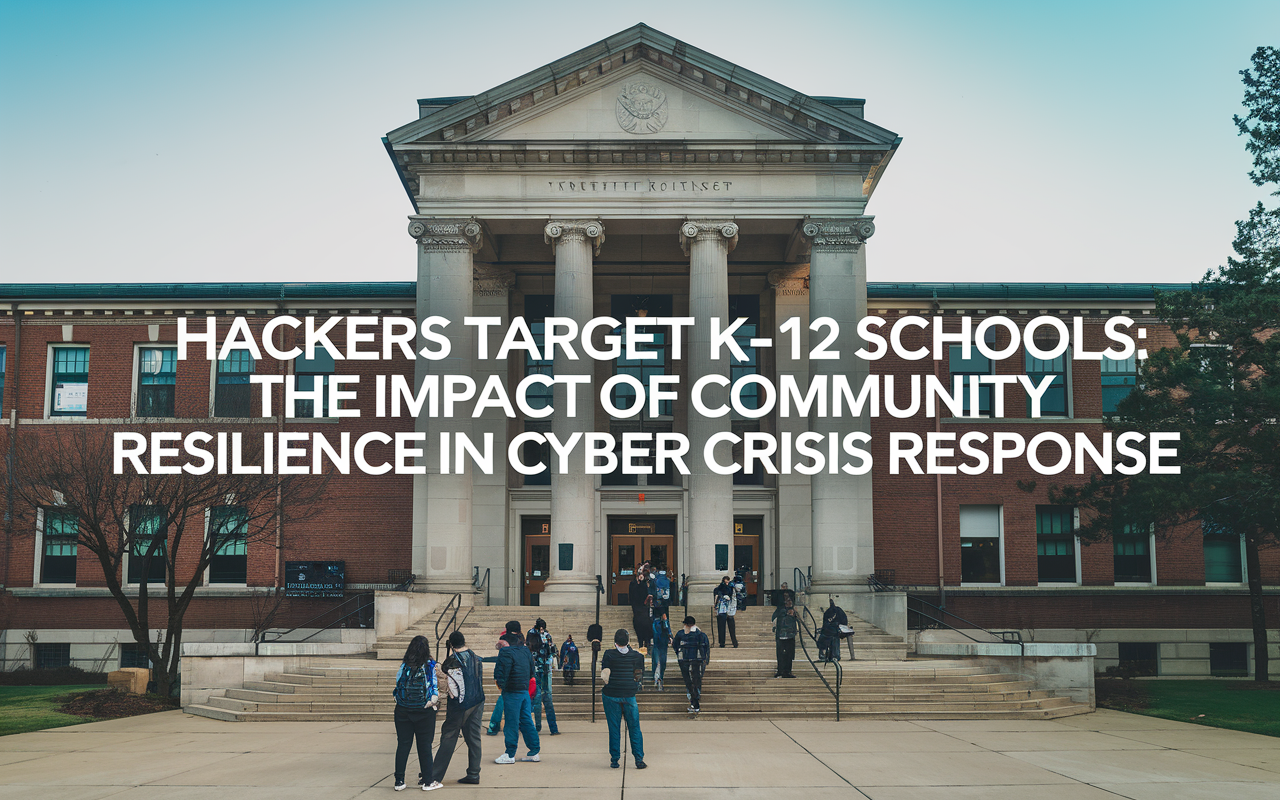Hackers Target K-12 Schools: How Community Resilience Made a Difference! 🔐💪
On January 7, a night that started like any other took a dramatic turn for Romy Backus, an administrator at the American School of Dubai. She received alarming news from PowerSchool, a major provider of cloud-based education software. The company disclosed a massive data breach, revealing that hackers had accessed sensitive information, including social security numbers, medical data, and grades of students and teachers. This was not an isolated incident—the breach affected schools worldwide, sparking panic among K-12 educators and administrators. 🌍🏫
A Call for Action Amidst Chaos
Following the breach, it became clear that PowerSchool's response was not as swift as needed. The critical information required for schools to understand the extent of the hack was missing. In the words of Backus, "Just telling me that, okay, we've been affected? Great. Well, what's been taken? When was it taken? How bad is it?" 😟
The overwhelming confusion led administrators to turn to each other. A network of support emerged as educators began sharing information, resources, and insights on platforms like WhatsApp and the non-official PowerSchool User Group. This grassroots movement fueled a collaborative, crowd-sourced response to a cyber crisis. 🔗💬
Making Connections: Knowledge is Power!
So, how did school workers, faced with minimal guidance from PowerSchool, manage to navigate this crisis? They collaborated! Backus utilized her expertise to gather data and develop a comprehensive how-to guide tailored for her peers, detailing the steps they could take to identify what data was compromised and how to protect their systems. 🚀
Within 24 hours of receiving the notification, she shared her findings via a Google Doc, which quickly went viral within the PowerSchool community, amassing thousands of views. Adam Larsen, another school administrator, followed suit by releasing tools and an instructional video to aid other schools in their response efforts.
Backus emphasized that the community's strength was paramount: "For so many of us, we don’t have the funding for full cybersecurity resources, and we have to band together." 🤝💼
Why We Need More Education in Cybersecurity
Doug Levin, a co-founder of K12 Security Information eXchange, pointed out that the education sector often lags in establishing shared information infrastructures for cybersecurity incidents. This vulnerability is exacerbated by understaffing and a lack of specialized knowledge in many schools. Levin noted, "The PowerSchool incident is of such a large scope that it is more evident." 📉💻
The community response was not just about healing from a cyber disaster; it underscored a need for better infrastructure and resources to combat future breaches effectively. The incident highlighted an urgent call for schools to enhance their cybersecurity frameworks and invest in providing their staff with more training and resources.
The PowerSchool data breach serves as a reminder of how critical it is to invest in cybersecurity within the educational system. As we forge into a digital age, building strong community networks and prioritizing education in cybersecurity will be vital in ensuring the safety of our students' information. 💡🔒
Let’s continue this conversation! Have you or your institution experienced a similar situation? How did your community respond? Share your thoughts below! 👇
[#CybersecurityMatters #K12Education]

More Stories
Meta’s AR Ambitions and AI Safety: Insights from the Equity Podcast
Insight Partners Data Breach: A Wake-Up Call for Cybersecurity Awareness
Lovable’s Ascendancy: Anton Osika at TechCrunch Disrupt 2025